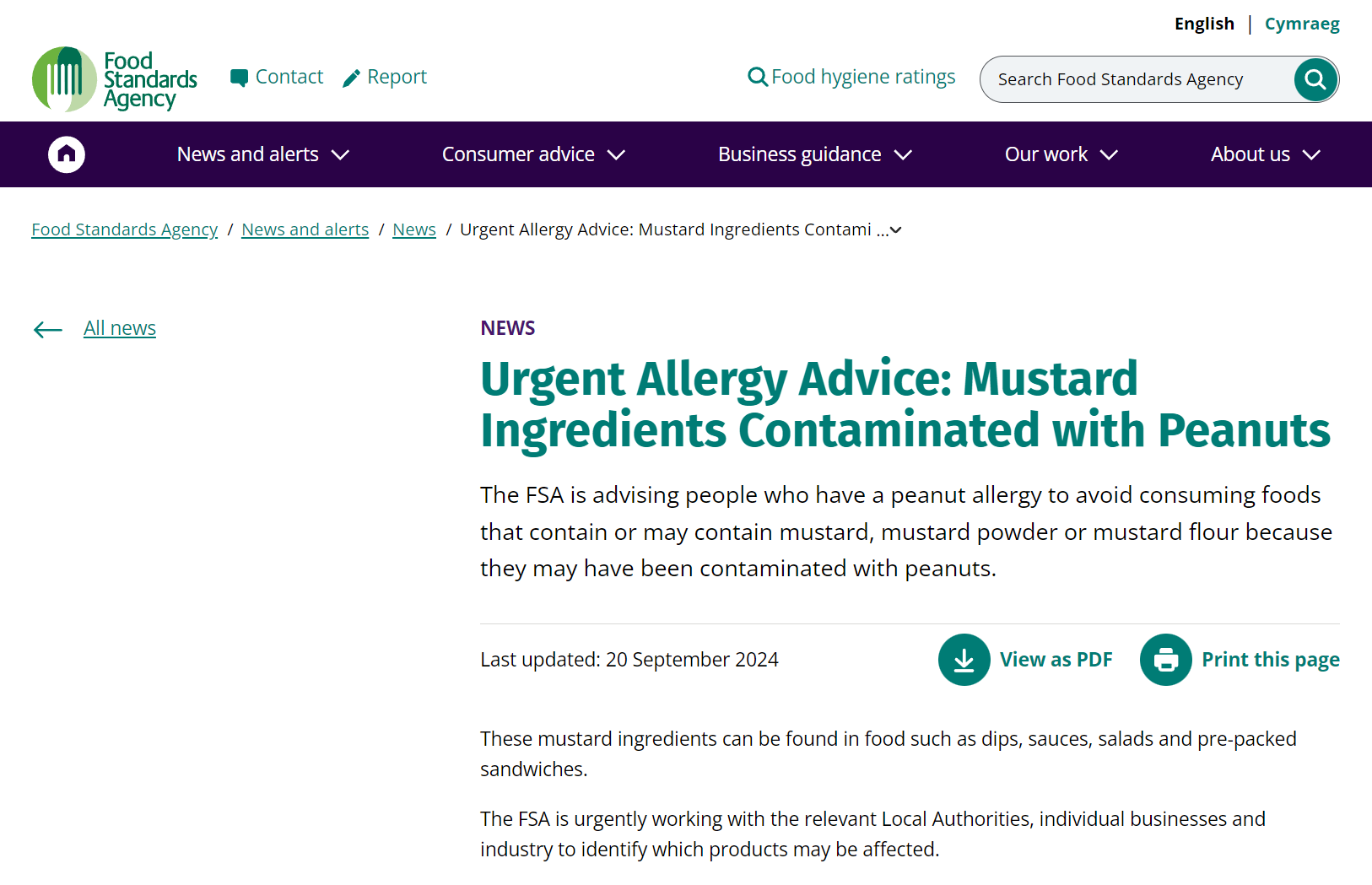The FSA is advising people who have a peanut allergy to avoid consuming foods that contain or may contain mustard, mustard powder or mustard flour because they may have been contaminated with peanuts.
These mustard ingredients can be found in food such as dips, sauces, salads and pre-packed sandwiches.
The FSA is urgently working with the relevant Local Authorities, individual businesses and industry to identify which products may be affected.
We have traced the contaminated mustard ingredients to a producer in India called GT Agro Industries and have identified one company who has supplied these ingredients for use in UK food. There is no evidence other suppliers are affected so far.
As we try to identify the individual products which may have been contaminated with these mustard ingredients and, because of the severity of some allergic reactions to peanuts, we are taking a precautionary approach so that people with a peanut allergy have up to date information about the potential risk and can take action to keep themselves safe. If mustard is present in a food, it should be labelled in bold on the packet because it is an allergen itself. If there is a risk that mustard could be unintentionally present in food there will be a ‘may contain’ label for mustard. If you are eating out, please ask the cafe or restaurant staff if any of their products contain mustard – by law, food businesses must provide this information to customers.
When we find an individual product is affected, we will issue a specific allergy alert on our website. The UK company affected, FGS Ingredients Ltd, has advised their customers to remove from sale products containing the contaminated mustard ingredients.
We have asked industry to review their food supply systems and remove from sale any products that may have contaminated mustard ingredients.
Food Standards Agency’s Director of Food Policy, Rebecca Sudworth, said:
“Those with a peanut allergy should avoid consuming products containing mustard as an ingredient until we identify the individual products affected. Parents and carers of children who have a peanut allergy should take care to check the labels of food they buy and, if eating out, or getting a takeaway, ask the restaurant or cafe about foods that might contain mustard.
As soon as we have more information, we will update consumers. As always, we urge people with an allergy to sign up to our allergy alerts, so you can be notified about future allergy recalls.”
